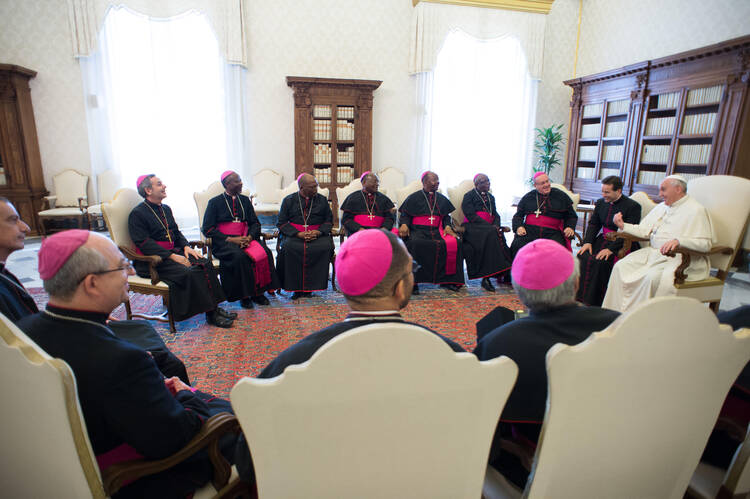In the last few months a pastor and self-styled prophet, Penuel Mnguni of the End Times Disciples Ministries, has been commanding members of his congregationin in Soshanguve township near Pretoria to eat live snakes. Charged with cruelty to animals and released pending trial, the pastor has recently encouraged his followers to eat underwear. Others of his ilk have made believers eat grass or drink petrol.
Church leaders from across the theological spectrum have denounced these practices as dangerous and immoral. They complain they bring religion itself into disrepute. Secular observers have called Mnguni’s acts gross violations of human rights. A few have even proposed that some form of regulation be introduced to control religious excesses, with some Christian voices calling for a self-regulatory body.
That such ministries are sinister is obvious. They rely on mass, possibly hypnotic, suggestion, group hysteria and unscrupulous manipulation. In many cases the promise of “miracles” and personal empowerment is directly connected to deeper preoccupations: personal healing and prosperity.
These promises come at a price, of course. Apart from leaving one’s reason at the church door (or tent flap, as in the case of our little friend Mnguni), the price includes massive “tithes” to the pastors as a sign of faith in their power. Needless to say, there is no evidence to show that people get better or richer—apart from the pastors.
These cults are driving a deeper wedge between the secular state and the religious communities. South African society is marked by a strange combination of deep faith and growing secularism. The percentage of nonreligious people, particularly among economic, social and political elites, has grown dramatically since 1994. Simultaneously faith practices have become more fundamentalist. Pentecostal-Evangelical and African Initiated Christianity has become the dominant spiritual discourse. Biblical literalism, belief in witchcraft and the supernatural and the embrace of “miracles and wonders” is common currency.
Secularists are contemptuous of such credulity, citing it as further proof of the irrationality of all religion. The formerly mainstream European-founded churches rightly worry that the credibility of faith itself is at stake. Dysfunctional religion and spiritual abuse make the headlines; the churches’ long-established charity and service to the poor do not. Faced with declining membership, they are also faced with a deeper dilemma: whether—or how far—to embrace the beliefs and practices of the new churches.
Suggestions about greater regulation of churches are neither workable nor desirable. They are unworkable because the kinds of churches that practice these dangerous absurdities are part of a long-established, but mushrooming trend of self-styled, often individual “ministries” built around charismatic individuals. They lack any real structure or theology apart from an eccentric, literal reading of the Bible and people’s willingness to believe in what is preached. These churhces easily pop up and just as quickly disappear.
Regulation is also undesirable. No one wants to see state control of religion. It is also unnecessary, since the South African Constitution, while strongly defending freedom of religion, sets limitations on church practices already based on deference to human rights. While conscience allows religions to practice what they believe (for example, not to witness same-sex marriages), some practices that violate the law (corporal punishment in faith-based schools) are outlawed. Mnguni has rightly been prosecuted not for his belief but for cruelty to animals.
So what is to be done to curb what I consider at the very least spiritual abuse? It seems essential that the wider South African public receive better religious education, both from within faith communities and from state education—the latter having abolished most religion education and cut back on theology faculties in state universities since the 1990s. Above all, state and faith communities need to understand why so many people are being drawn into prosperity and healing religion. As I see it, poverty and desperation, poor education and massively inadequate public health-care are issues that need to be addressed.
I suspect, too, that this is not a uniquely South African problem. If we look at fundamentalism globally, some with practices even more dangerous than eating snakes, we see the same causes, the same challenges to reasonable people of all or no faiths.








